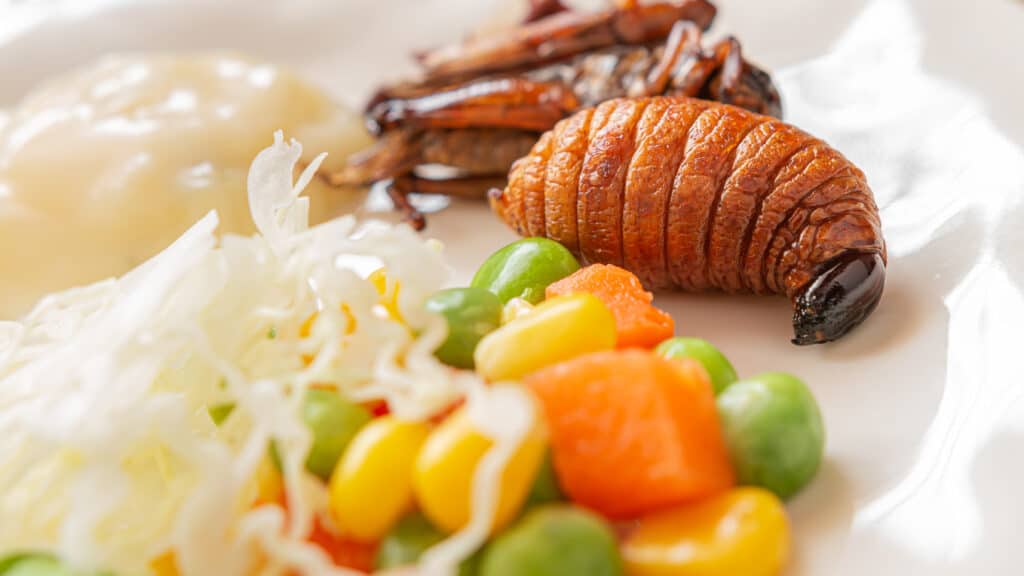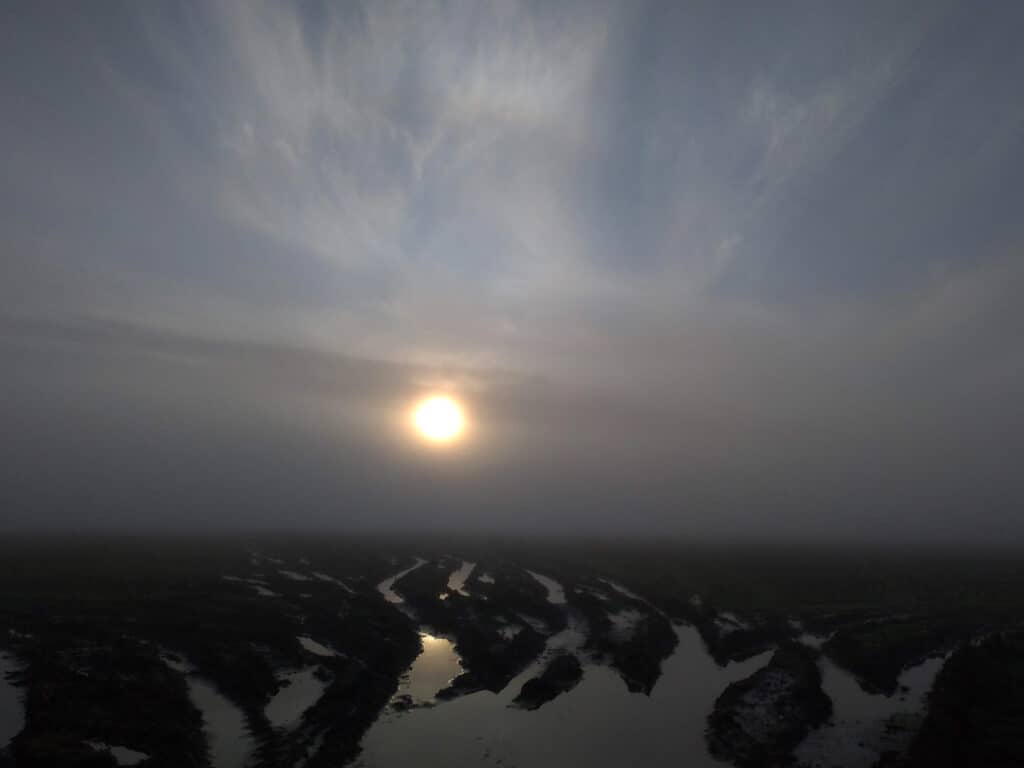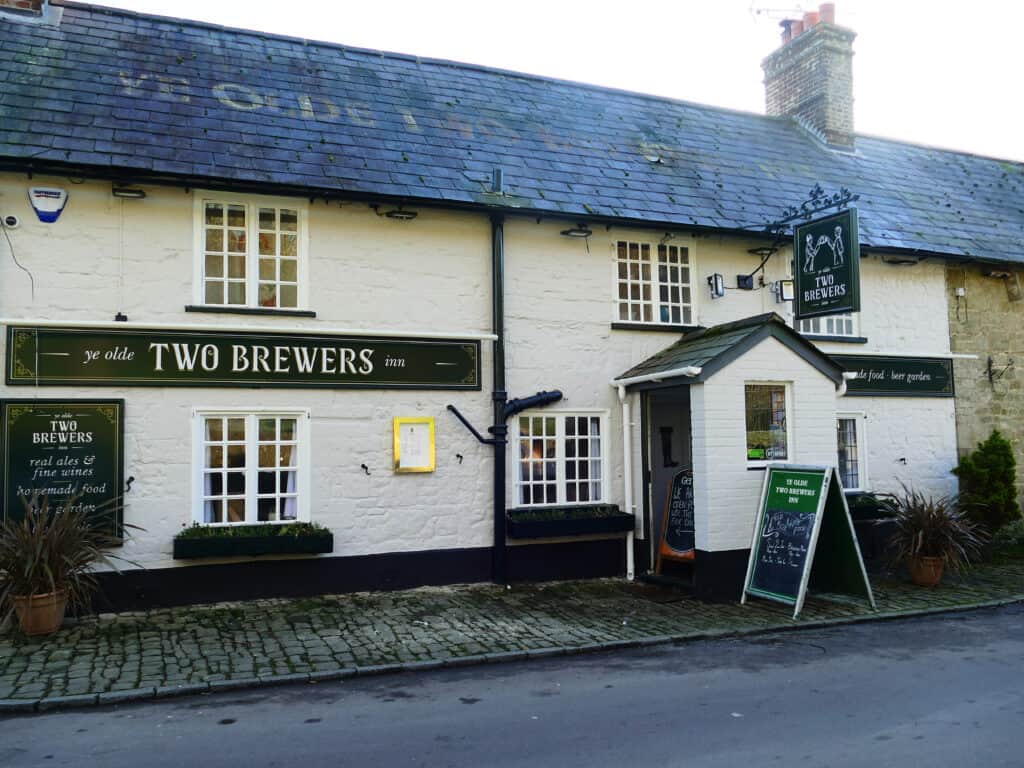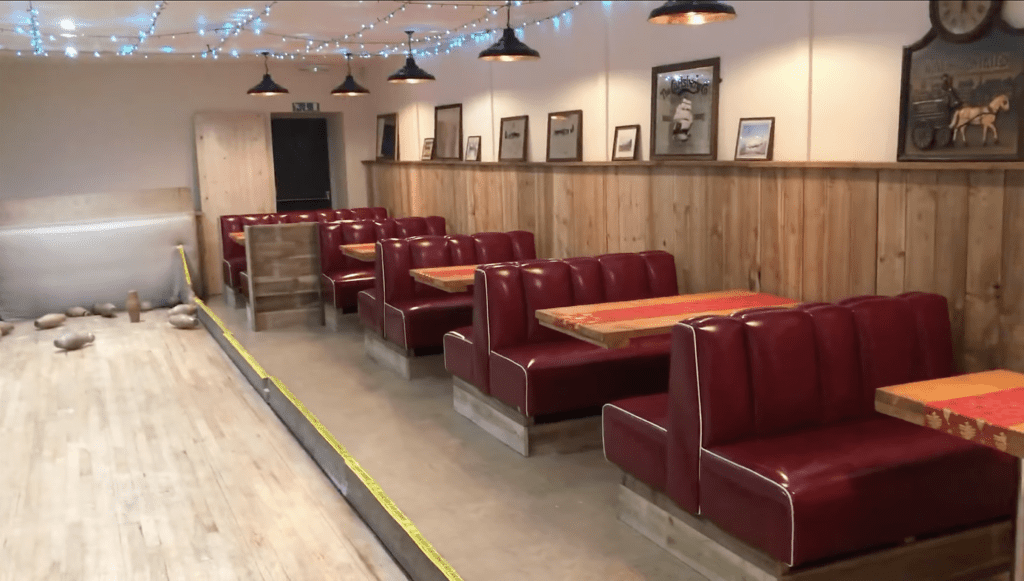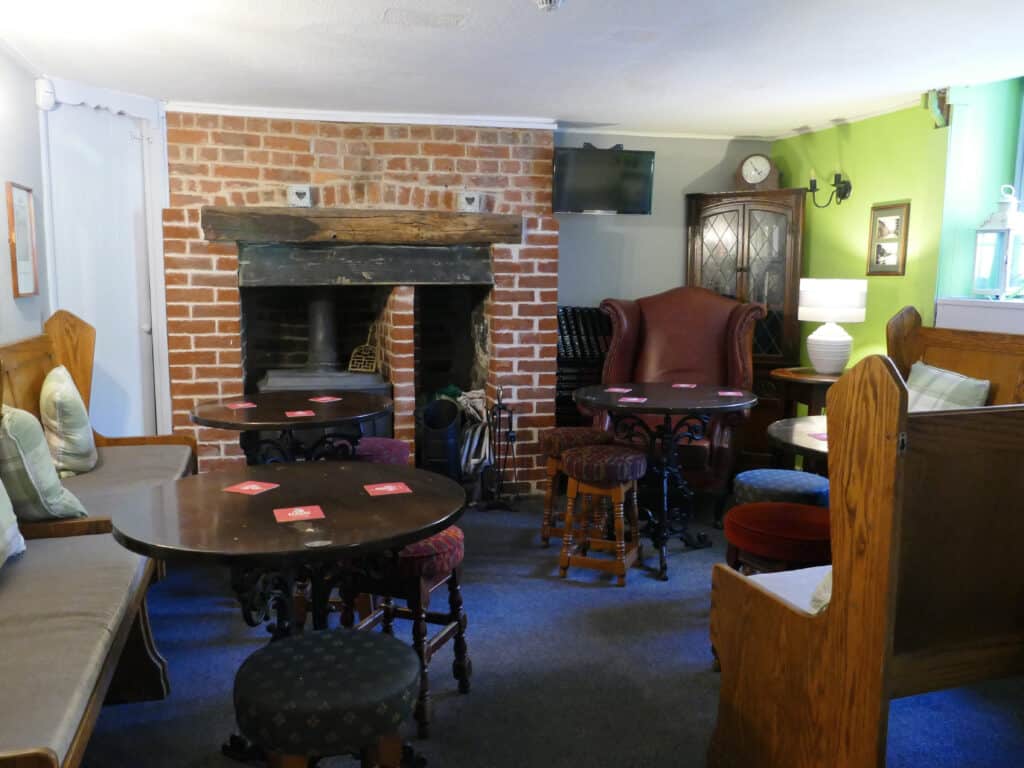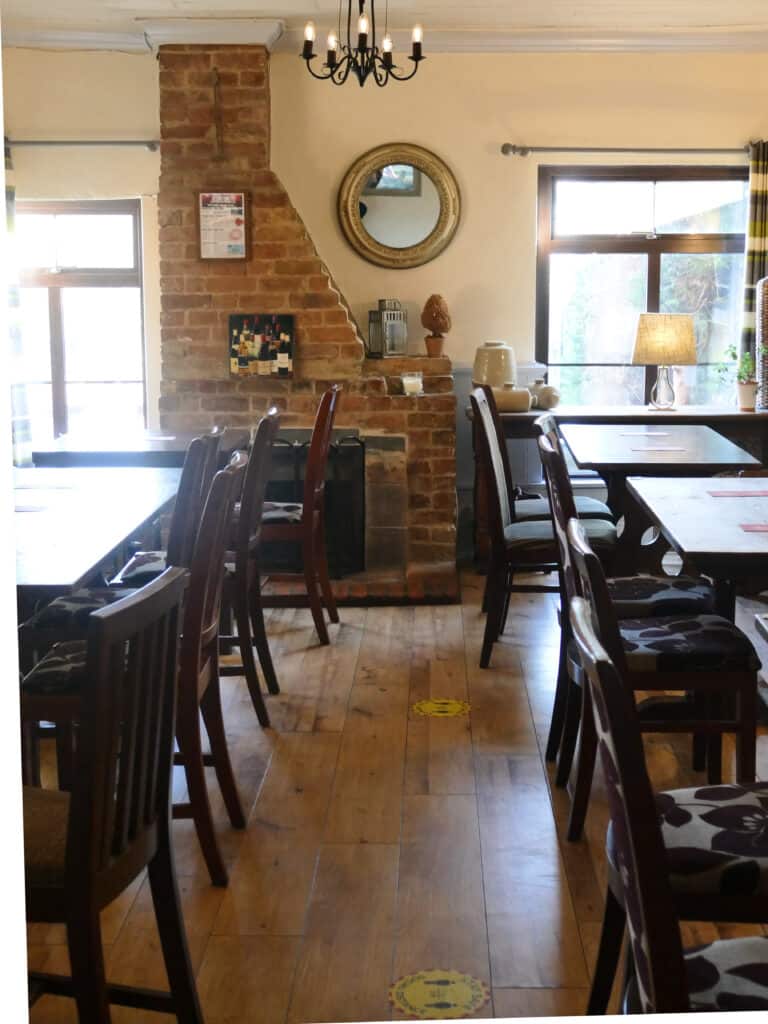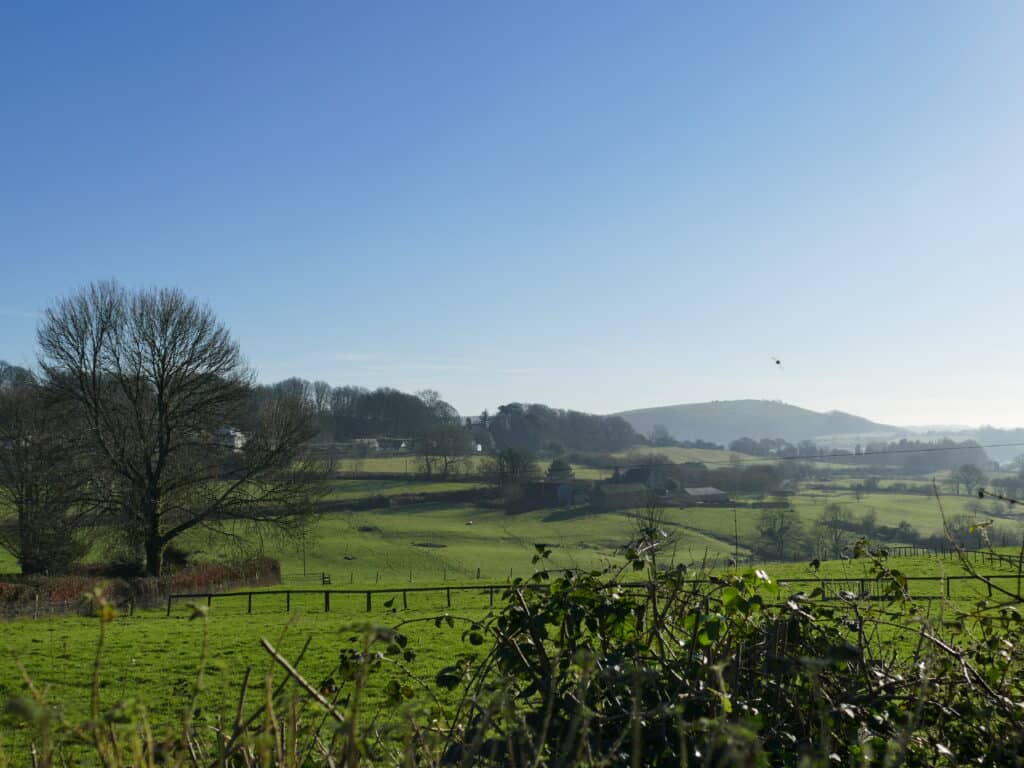On a chilly day, the arrival of an impudent wild friend interrupting an outdoors chat gives wildlife columnist Jane Adams pause for thought.

when few other birds are about. They tend to be among the earliest birds to start the dawn chorus and one of the last to stop in the evening. Street lights and floodlights can trigger singing in the middle of the night, and if roosting robins are disturbed, they can burst into song even in complete darkness. image: Jane Adams
The yearly gas boiler check is complete. Adam, the boiler engineer, is waiting in the driveway. Two metres away I’m leaning on the backdoor, and we’re both wearing facemasks – how quickly we’ve got used to these open-air, socially distanced chats.
Though it’s chilly today, the arrival of a wild friend, a robin, lessens our discomfort.
A shamelessly nosy visitor
As I quiz Adam on the cost of heat pumps, the robin hops between his feet. After perching on his boots and pecking at his laces, it darts off to balance on the rim of a terracotta pot but soon returns, flapping, dipping, and bobbing.
Finally, it pauses on the garden table, where it tilts its head and stares at us.
You, madam, are a boar.
Robins see us as modern day wild boar. Boar disturbed insects as they foraged through ancient woodlands. We fork over compacted earth, throw dead stalks onto the compost heap, and rake fallen leaves – all supplying a similar smorgasbord of insects for our avian neighbours.
But this bird isn’t feeding. In fact, there’s not an insect in sight and the ground lays undisturbed and stiff with ice. Surely it can’t be trying to chase the boilerman out of the garden. Can it?

The gardener’s friend is a thug
Our culture is full of robin symbolism. We think of them as lucky; they are the gardener’s friend and make us smile. Yet within their own world, their life is violent and territorial. If your garden has plentiful food and perfect nesting sites, your resident red-breast will chase trespassing robins out of its patch. Fights lead to injury, sometimes death, so any new robin needs to watch its back. Today’s visitor is pecking at Adam’s boot again, but not aggressively.
It reminds me of a saying linking robins to deceased friends and family; “Robins appear when loved ones are near”.
Has Syd, my husband’s godfather and former owner of this house, returned in the body of this bird?
Is he scrutinising our choice in boiler engineer?
The next time you’re approached by a robin, it’s worth considering why it’s there.
Jane Adams – Naturalist. bTB Badger Vaccinator. Nature writer. Photographer. Bee Watcher.


